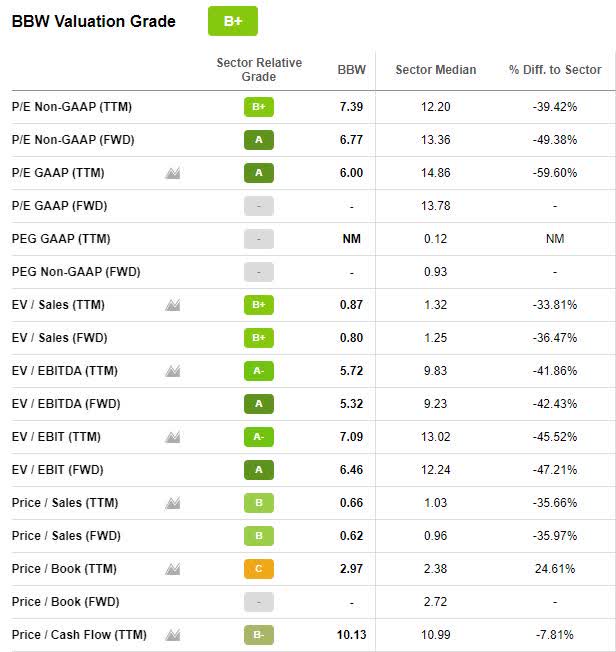
An effective way to gain access to global investment opportunities is to invest in emerging market bond funds. These funds can present risks that are unique to other types of investments. These risks include currency fluctuations, political instability and economic risks. These risks can also increase short-term capital loss risk.
Emerging markets bond funds generally invest in foreign debt of sovereign governments. Because of the less-regulated securities markets of these countries, they can have a higher risk of price volatility and less liquidity. These funds are also subject to unique risks like credit risk, currency rate risk, and issuer risk.
The JPMorgan EMBI Global Diversified Index is a market-capitalization-weighted index that tracks debt instruments issued by sovereign entities. The index includes local-currency sovereigns debt and Eurobonds.

The Bloomberg Barclays Emerging Markets USD Agregate bonds index has lost 1.3 percentage in the last six week. This was due to the eurozone's continued weakness and the Ebola outbreak in west Africa. This has caused investors not to invest in emerging market bonds or other risk assets. A number of commentators claim that the recent correction made emerging market bonds more attractive than they were before.
Harding Loevner Institutional Emerging Markets Fund was one of the funds that has been successful at incorporating emerging markets in its portfolio. It is more risky than other Morningstar funds, but it offers higher returns than others in its category. Additionally, the managers of this fund are more likely to invest at least half of their assets into corporate bonds.
The iShares JPMorgan USD Emerging Markets Bond is another fund worth considering. The fund tracks a range of US-denominated emerging market debt instruments. Venezuelan sovereign debt is excluded. It also holds defaulted bonds. Its allocation to Venezuelan debt, however, is very low. However, it can also hold a variety other issues such as restructured or unstructured debt. The fund offers investors a broad array of investment opportunities at low prices.
Emerging markets bonds funds are a good choice to diversify a portfolio for the long term. Investors should consider the inherent risks involved in investing in bonds. This includes currency fluctuations and issuer default risk. These risks could also impact the industry or sector the fund is invested in. This is especially true for bonds issued by foreign governments.

Emerging markets bonds funds are best used as a supporting asset to a balanced portfolio. If you are interested in this sector, there are a number of emerging markets bond ETFs that you can consider. They offer a broad range of nuanced bonds as well as robust liquidity. They offer lower fees than most emerging markets bond mutual funds, which can make them a cost-effective alternative to individual issues.
FAQ
What is a mutual fund?
Mutual funds are pools that hold money and invest in securities. Mutual funds provide diversification, so all types of investments can be represented in the pool. This reduces risk.
Professional managers oversee the investment decisions of mutual funds. Some mutual funds allow investors to manage their portfolios.
Most people choose mutual funds over individual stocks because they are easier to understand and less risky.
What are the benefits to owning stocks
Stocks are more volatile that bonds. The stock market will suffer if a company goes bust.
But, shares will increase if the company grows.
For capital raising, companies will often issue new shares. Investors can then purchase more shares of the company.
Companies borrow money using debt finance. This gives them access to cheap credit, which enables them to grow faster.
A company that makes a good product is more likely to be bought by people. As demand increases, so does the price of the stock.
As long as the company continues to produce products that people want, then the stock price should continue to increase.
What is security?
Security is an asset that produces income for its owner. Shares in companies are the most popular type of security.
A company may issue different types of securities such as bonds, preferred stocks, and common stocks.
The value of a share depends on the earnings per share (EPS) and dividends the company pays.
Shares are a way to own a portion of the business and claim future profits. If the company pays a payout, you get money from them.
You can always sell your shares.
What's the difference between a broker or a financial advisor?
Brokers help individuals and businesses purchase and sell securities. They handle all paperwork.
Financial advisors are experts in the field of personal finances. They use their expertise to help clients plan for retirement, prepare for emergencies, and achieve financial goals.
Financial advisors can be employed by banks, financial companies, and other institutions. Or they may work independently as fee-only professionals.
You should take classes in marketing, finance, and accounting if you are interested in a career in financial services. Also, it is important to understand about the different types available in investment.
What is an REIT?
A real estate investment trust (REIT) is an entity that owns income-producing properties such as apartment buildings, shopping centers, office buildings, hotels, industrial parks, etc. They are publicly traded companies which pay dividends to shareholders rather than corporate taxes.
They are similar to corporations, except that they don't own goods or property.
Statistics
- Our focus on Main Street investors reflects the fact that American households own $38 trillion worth of equities, more than 59 percent of the U.S. equity market either directly or indirectly through mutual funds, retirement accounts, and other investments. (sec.gov)
- Individuals with very limited financial experience are either terrified by horror stories of average investors losing 50% of their portfolio value or are beguiled by "hot tips" that bear the promise of huge rewards but seldom pay off. (investopedia.com)
- Ratchet down that 10% if you don't yet have a healthy emergency fund and 10% to 15% of your income funneled into a retirement savings account. (nerdwallet.com)
- US resident who opens a new IBKR Pro individual or joint account receives a 0.25% rate reduction on margin loans. (nerdwallet.com)
External Links
How To
How to open a trading account
The first step is to open a brokerage account. There are many brokers available, each offering different services. There are some that charge fees, while others don't. Etrade, TD Ameritrade Fidelity Schwab Scottrade Interactive Brokers are some of the most popular brokerages.
Once you have opened your account, it is time to decide what type of account you want. You should choose one of these options:
-
Individual Retirement Accounts (IRAs).
-
Roth Individual Retirement Accounts
-
401(k)s
-
403(b)s
-
SIMPLE IRAs
-
SEP IRAs
-
SIMPLE SIMPLE401(k)s
Each option offers different benefits. IRA accounts have tax benefits but require more paperwork. Roth IRAs give investors the ability to deduct contributions from taxable income, but they cannot be used for withdrawals. SIMPLE IRAs can be funded with employer matching funds. SEP IRAs work in the same way as SIMPLE IRAs. SIMPLE IRAs are very simple and easy to set up. These IRAs allow employees to make pre-tax contributions and employers can match them.
You must decide how much you are willing to invest. This is called your initial deposit. Most brokers will offer you a range deposit options based on your return expectations. A range of deposits could be offered, for example, $5,000-$10,000, depending on your rate of return. The lower end represents a conservative approach while the higher end represents a risky strategy.
After choosing the type of account that you would like, decide how much money. Each broker sets minimum amounts you can invest. The minimum amounts you must invest vary among brokers. Make sure to check with each broker.
After choosing the type account that suits your needs and the amount you are willing to invest, you can choose a broker. Before selecting a broker to represent you, it is important that you consider the following factors:
-
Fees – Make sure the fee structure is clear and affordable. Many brokers will try to hide fees by offering free trades or rebates. However, some brokers charge more for your first trade. Be wary of any broker who tries to trick you into paying extra fees.
-
Customer service – Look for customer service representatives that are knowledgeable about the products they sell and can answer your questions quickly.
-
Security - Select a broker with multi-signature technology for two-factor authentication.
-
Mobile apps – Check to see if the broker provides mobile apps that enable you to access your portfolio wherever you are using your smartphone.
-
Social media presence. Find out whether the broker has a strong social media presence. If they don’t have one, it could be time to move.
-
Technology - Does it use cutting-edge technology Is the trading platform easy to use? Are there any issues with the system?
Once you've selected a broker, you must sign up for an account. While some brokers offer free trial, others will charge a small fee. Once you sign up, confirm your email address, telephone number, and password. You will then be asked to enter personal information, such as your name and date of birth. Finally, you will need to prove that you are who you say they are.
After your verification, you will receive emails from the new brokerage firm. These emails will contain important information about the account. It is crucial that you read them carefully. You'll find information about which assets you can purchase and sell, as well as the types of transactions and fees. Also, keep track of any special promotions that your broker sends out. You might be eligible for contests, referral bonuses, or even free trades.
Next is opening an online account. An online account is typically opened via a third-party site like TradeStation and Interactive Brokers. These websites can be a great resource for beginners. You will need to enter your full name, address and phone number in order to open an account. Once you have submitted all the information, you will be issued an activation key. You can use this code to log on to your account, and complete the process.
Once you have opened a new account, you are ready to start investing.